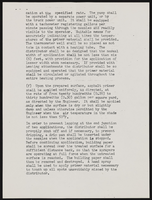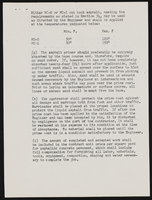Search the Special Collections and Archives Portal
Search Results
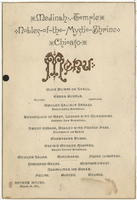
Nobles of the Mystic Shrine, Medinah Temple event menu, March 28, 1885, Revere House
Date
Archival Collection
Description
Text
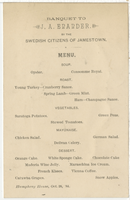
Menu for the banquet to J. A. Enander by the Swedish Citizens of Jamestown, October 28, 1884, at Humphrey House
Date
Archival Collection
Description
Text
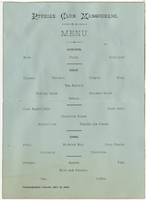
New Year Eve, Pythian Club Masquerade event, menu, December 31, 1884, at Thornburgh House
Date
Archival Collection
Description
Text
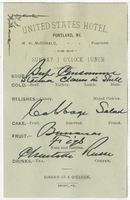
United States Hotel, lunch menu, Sunday
Date
Archival Collection
Description
Text
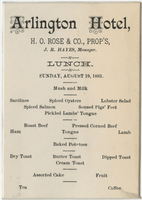
The Arlington House, lunch menu, Sunday, August 19, 1883
Date
Archival Collection
Description
Text
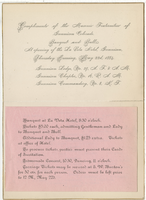
Invitation to a banquet and ball, Thursday evening, May 22, 1884, for the opening of the La Veta Hotel.
Date
Archival Collection
Description
Note: Invitation includes the schedule of events, costs, instruction for event and carriage ticket procurement Menu insert: Event programs Restaurant: La Veta Hotel Location: Gunnison, Colorado, United States
Text
Kendall Stagg Collection
Identifier
Abstract
The Kendall Stagg Collection (1998-2000) consists of material documenting Kendall Stagg’s political races in northern Nevada and also details gay activism in Reno. The collection consists of Stagg campaign materials, a t-shirt from one of his campaigns, and documents pertaining to the Gay, Lesbian, and Bisexual Student Union at the University of Nevada, Reno and Gay Pride parade organizing in Reno.
Archival Collection


